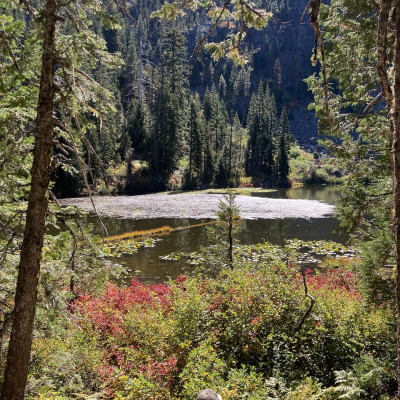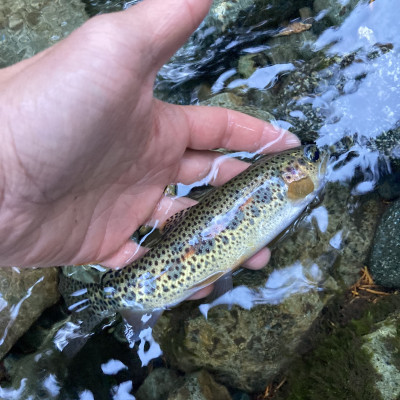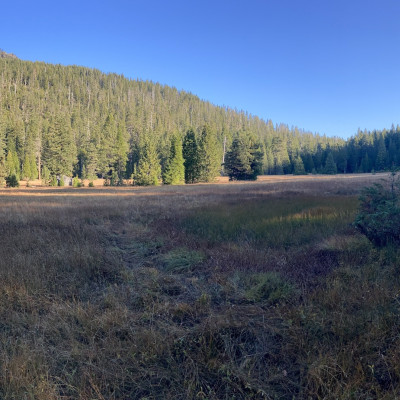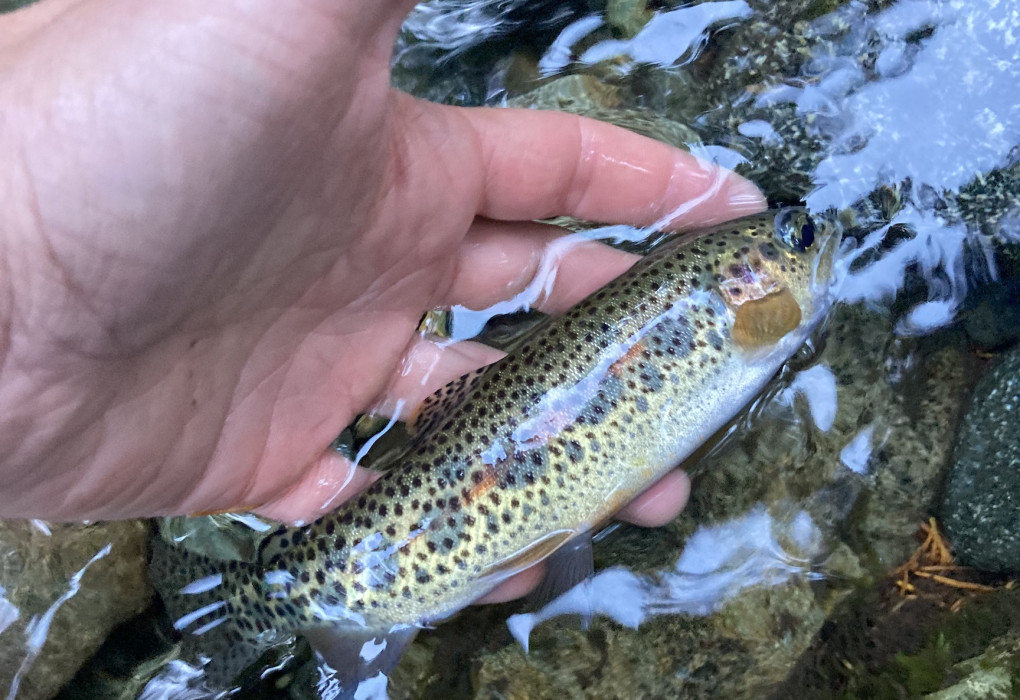StEELhead Discoveries Series - Part 6
*This is Part 6 of an ongoing series on the campaign to Free the Eel and efforts to better understand and revive the iconic steelhead in the Pacific Northwest by Native Fish Society Fellow Samantha Kannry. View all parts of the series HERE. Additional parts and updates will be posted over the next several months. Stay tuned!
~ ~ ~ ~ ~ ~
"This period of the Earth’s rotational cycle, which in our region of the world results in lowering temperatures, decreasing daylight, and increasing precipitation, means the close of our annual sampling season. Our methods for catching juvenile fish require low flows and high water clarity to be effective. The exact date shifts from year to year, certain drier autumns have allowed short jaunts into the field through the end of November. This year however, we were chased out of creeks by rainfall on a few trips, from the end of August through October. We were able to wait out a few of the earlier storms, and most of the creeks we were interested in maintaining their clarity. We passed a few pleasant afternoons seining in a warm drizzle and planning future sampling trips when the drizzle turned to heavy rain.
Our second to last trip of the season took us high into tributaries of the mid-Klamath and then over the ridge into southern Oregon. We viewed the regional power spot, Young’s Peak, from afar. It is not a particularly prominent peak, in the shadow of Preston, El Capitan, and the Lieutenants, but it has the distinct honor of draining into the Smith River (Siskiyou Fork), Klamath River (Clear Creek), and the Rogue (East Fork Illinois). The meadows, lakes, ridges, and creeks of this area touch a forgotten place, deep inside us and keep us yearning to return for more.
This trip had the combined purpose of sampling an introduced coastal cutthroat trout population in upper Indian Creek (mid-Klamath tributary), trying to find its origins, and continuing our O. mykiss run-timing investigation. Our focus on Klamath and Trinity O. mykiss populations this summer enabled a temporary memory lapse of just how elusive coastal cutthroat can be. We are in search of locations with putatively resident and anadromous individuals and locations where they are abundant enough for us to catch 20 of them. This usually requires there to be few to no O. mykiss, and, in the case of putatively resident individuals, an anadromous barrier. Through our search for these places, we have gained a deeper understanding of the habitat coastal cutthroat prefer. We have also gained an appreciation for how they are using what are often isolated, sandy puddles in tiny, steep drainages.
Our final trip focused on a few Oregon coastal streams and the lower Rogue River. We were unable to find as many cutthroat locations as we had hoped, but we have a better idea of what we need to do next year. Now, we move on to the laboratory portion of our project, DNA extraction and sequencing library preparation."
-Samantha Kannry



~~~~~
About the Author:
Samantha Kannry has been monitoring, studying, and swimming with summer-run steelhead in the Eel River and other rivers of Northwestern California for the past thirteen years. She joined NFS as a volunteer in 2015, then became a fish genetics fellow in 2020.
While it has been clear to the native peoples of the region since time immemorial that summer-run steelhead and the congeneric spring Chinook are separate populations, not everyone else sees it so clearly. Her research has focused on using conservation genetic tools to elucidate the distinction between summer and winter-run steelhead.
When not minking (a combination of hiking, swimming, snorkeling, sliding, shimmying, and boulder jumping) down rivers, she is usually growing and eating fruit, moving manure at Caudal Fin Farm, or bike touring distances large and small. All working towards re-establishing the inherent continuity between rivers, land, and people.
Read StEELhead Discoveries Part 1 - 5 HERE.

